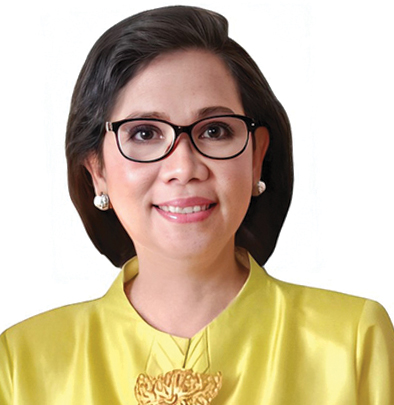Closing the digital gender divide: What’s next for the digital economy?
 by Putu Monica Christy and Lenny Nurharyanti Rosalin
by Putu Monica Christy and Lenny Nurharyanti Rosalin Feb 13, 2023
Feb 13, 2023 3 min
3 min
The world is experiencing a digital revolution and anticipating its potential to improve women’s empowerment. However, studies found that women are still struggling to enter the digital ecosystem due to many factors. This blog—previously published as an op-ed piece at The Jakarta Post—outlined women’s limited participation in the digital economy and the policy recommendations to close the digital gender gap. MSC took part in drafting the policy recommendations and discussed them in detail at the G20 Ministerial Conference on Women’s Empowerment (MCWE) in Bali last August 2022.
Digital transformation has become today’s buzzword, and a focus of most countries —and Indonesia is no exception. Although the digital revolution promises to improve social and economic outcomes for women, it also comes with the risk of perpetuating patterns of gender inequality.
This year, Indonesia’s Digital Literacy Index 2021 is at 3.49, or close to a moderate stage. However, when we assessed a sample of 10,000 respondents in terms of gender, 55% of male respondents had a higher digital score above the national average. In contrast, the proportion of female respondents was only 45%.
The digital journey for women is not seamless. Several barriers keep women and girls offline, such as expensive mobile devices and data packages, lower digital skills, and restrictive social norms.
A report from the Alliance for Affordable Internet (A4AI) in 32 lower-middle-income countries reports that countries have missed out on USD 1 trillion in GDP due to women’s exclusion from the digital world. Thus, closing the digital gender gap is not just a moral cause; it is an economically crucial opportunity for women to participate in the economy.
In Indonesia, women own 61% of MSMEs. Yet only 17% of them are present on the e-commerce platforms. The effects of the pandemic urged MSMEs to access markets using digital technology to help the nation’s economy revive and grow. MSMEs must therefore seek to integrate with the digital ecosystem to survive and thrive. However, connecting MSMEs to the digital ecosystem is notoriously complex. For women, the challenges intensify.
Women experience systemic gaps, while discriminatory practices prevent women-led MSMEs from social and economic participation, and from financial and digital inclusion. Women cannot safely own or access essential digital services, skills, and resources as a fundamental right, which discourages women-led MSMEs from competing digitally in the marketplace. Additionally, they struggle to enter the digital ecosystem due to other factors, such as a lack of gender-responsive digital infrastructure, inadequate market access, and limited control and ownership of productive digital skills and assets.
What key actions can support the effort to close the digital gender gap in Indonesia?
First, the flagship National Strategy of Women’s Financial Inclusion, which targets around 83 million women, can serve as a strategic entry point. However, it must be implemented widely and re-evaluated to target the right audience, connect women to digital financial services, and create an enabling environment for women-led MSMEs.
Second, clearly stating the figures in the Gender Responsive Planning and Budgeting (GRPB) should be mainstreamed to all line ministries and assessed regularly by the Ministry of Development Planning, the Ministry of Women Empowerment and Child Protection, the Ministry of Finance, and the Ministry of Home Affairs to maintain implementation quality at national and regional levels.
Third, the government can provide a support system to empower more women in STEM and ICT through affordable access and consistent policies in partnership with stakeholders. A study by ILO across the ASEAN region reveals women’s participation in computer programming, consultancy, and related activities in Indonesia stands at only 21%.
Fourth, enhancing easy and safe access to digital skills through gender-responsive entrepreneurship training and program can help the women-led MSMEs compete in the fierce digital marketplace.
Most recommendations above were discussed in detail at the G20 Ministerial Conference on Women’s Empowerment (MCWE) in Bali last August 2022. The G20 country members highlighted the need for collaboration between economies to close the digital gender gap. Participants agreed that member countries should open more opportunities for women to participate in STEM and digital sectors and build their digital resilience.
The Conference agreed that women’s participation in the digital economy needs serious attention, considering the enormous cost of digital exclusion to the economy. As the host of this year’s presidency, Indonesia must now urgently push the women’s empowerment and gender mainstreaming agendas.
Besides, the Women20 and G20 Empower Initiative members also highlighted the urgency of enabling women and girls’ skills in digital technology and scaling up the foundation to support women-owned businesses through inclusive ICT and economic recovery policies and programs.
Yet, the outputs of the G20 MCWE 2022 to the G20 Leaders leaves stakeholders, such as the Ministry of Women Empowerment and Child Protection, think tanks, academia, and the private sector, with much to advocate for. Only through such advocacy can gender issues be mainstreamed and women be empowered to enjoy unrestricted access to the digital economy. Because a digital economy that does not include women adequately cannot scale to reach its full capacity.
Written by


Leave comments